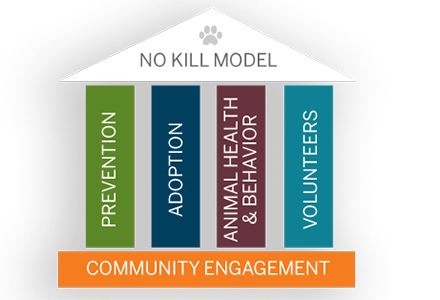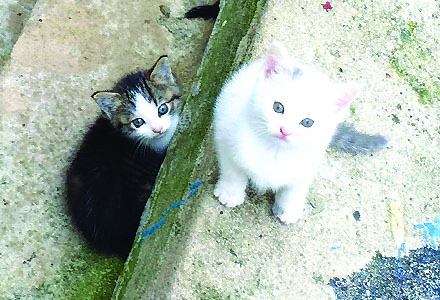We realized early on that curtailing pet overpopulation was key to building a No Kill Chicago.
The main tools to reducing the birth of unwanted animals are spay/neuter programs and community outreach. The majority of stray, feral and other homeless pets originates in low-income, under-resourced communities. Important pet resources like free spay/neuter surgeries, information on pet care and training, and affordable medical care are all necessary ingredients to reducing pet homelessness and building a humane community.
With the PAWS Chicago Lurie Clinic located in Little Village, we performed 17,168 spay/neuter surgeries in 2024. All PAWS Chicago spay/neuter surgeries are provided for free or low-cost.
PAWS Chicago’s feral cat Trap Neuter Return (TNR) program is a critical aspect of our targeted spay/neuter approach. It is aimed at proactively sterilizing and managing the free roaming cat population, the source of thousands of kittens born on the streets each year. TNR reduces the number of animals entering the sheltering system while also saving kittens and finding them adoptive homes. In 2024, PAWS performed 3,672 spay/neuter surgeries on feral cats.
The Pet Food Bank and Crisis Care Program offer food, supplies and temporary foster care for pets of families who have fallen on hard times, helping keep pets with their families and out of shelters. In 2024, we distributed 83,207 pounds of pet food to the community.
Expanding our reach and meeting people who would never have known about PAWS Chicago’s support and resources are the key objectives of our outreach efforts.
In late 2014, we also launched our Outreach Program to connect families in need with resources and information to help them better care for their pets. This program focuses on families in need, supplying them with resources and information to help them better care for their pets.
Our door-to-door community outreach focuses on Chicago’s most under-resourced communities, reaching people where they live and providing pet information and resources, including free spay/neuter.
About 91% of the pets we meet at community outreach events have not been spayed or neutered. Of that number, we have been able to provide free spay/neuter and transportation for 85% of them.


